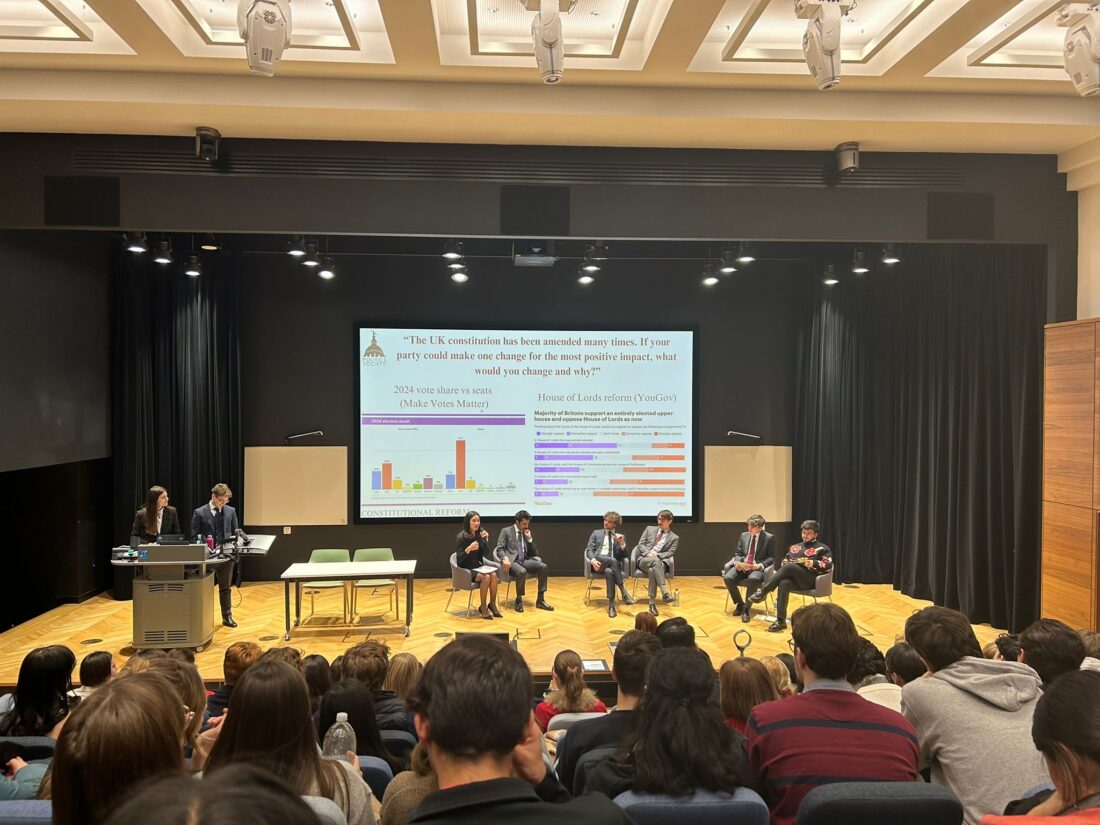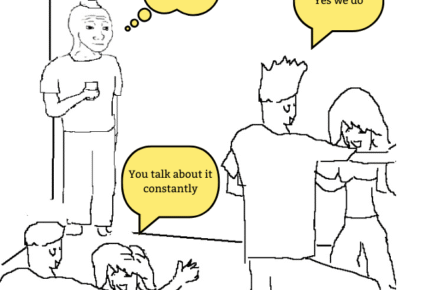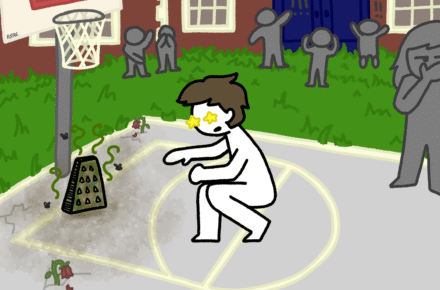

University politics is a complex phenomenon. Between the Students’ Union, society politics, and those on campus who represent the national parties, political life at any university is a large, incoherent, mess.
Nevertheless, university politics is integral to the health of student life, democracy and community. Lying at the heart of all of this is the Union, with the bureaucratic machine acting as the engine of student life at most universities, and most particularly at UCL.
This article, unlike many others written in The Cheese Grater, does not solely concern the Union, however. I instead wish to turn my primary attention to UCL’s party-political societies and debate culture in general.
Many students decry party politics as far-removed from their everyday lives and see the UK’s political system as largely ineffective at addressing their concerns and interests. Indeed, students have credible reasons to think in such a fashion; Rachel Reeves did after all fail to mention students once in her October 2024 budget (CG Online).
However, the importance of student participation in the university chapters of the UK’s political parties is paramount in facilitating greater attention to be paid to the concerns of students both in London and across the country.
Participation also facilitates a sense of community coherence amongst the politically interested within UCL’s student body. The decline of student participation in Labour politics particularly is at once a symptom of, but also the cause behind, the party’s apparent abandonment of young people. It is crucial that all political parties garner youth participation as a means of generating greater urgency and pressure behind policies to fit the needs of our community.
I have written before about the UCL Labour Society (Digestive 1) and I do accept that the Society has reformed in many regards since its publishing. Nonetheless, the lack of debate within the society’s agenda is an area that must be fixed if we are to bring to fruition a true political culture at UCL.
I raise this point because of what is happening down at the Strand. Just last Thursday, the King’s Politics Society cross-party debate saw over 300 people turn out to watch the Tories, Labour, and the Lib Dems battle it out on the stage of the Bush House Auditorium, creating an atmosphere of political fervour we could only pray for here on Gower Street.
Now, I accept that KCL and UCL have different student cultures, with the former being much more political than the latter. But I maintain that there is an appetite for political discourse here at UCL, as evidenced by the high expected turnout at the “Great NHS Debate” run by the UCL Healthcare Management and Politics Society this Friday (29 November).
Ultimately, the lack of debating events at UCL is not the fault of UCL Labour. It is rather a cultural issue at the University, where debate has died and careerist opportunism has taken hold of societies’ inclinations.
The overabundance of speaker events has supplanted society gatherings which truly cater to student life. In prioritising career insights and speaker events over opportunities for debate and socialisation, political culture at UCL feels soulless and devoid of substance beyond abject opportunism.
Of course speaker events are important. But without active student-centred events like debates, a backsliding of student-centred culture becomes glaringly apparent.
I argue that, if debates and opportunities for discourse were put on an equal footing as speaker events, student participation in both the political societies and those which cater to political interests, would greatly increase. This would, in turn, increase party-political society participation, and generate greater interest in the ongoings of the world beyond the boundaries of Bloomsbury.
This proposition is evident at those universities which have vibrant debating unions. Whilst the Oxford, Cambridge, Trinity Dublin, and Durham debating unions have their intrinsic issues, the ability for students to debate on the political issues of the day – often alongside important figures relevant to any given debate – is paramount to the creation of a politically and intellectually healthy student community.
In these universities, party-political and politically-oriented societies also hold debates, giving opportunities to students to voice their own opinions, concerns and polemics which are otherwise left to the university’s elites – as is the case at UCL.
Cambridge, for example, has a longstanding culture of debate and discourse, which allows for regular formalised debate to disseminate across colleges and societies (like the Cambridge University Labour Club or the feminist zine Gender Agenda), something that has long been absent at UCL. Indeed, our most notable debates, such as the Provost’s Disagreeing Well obsession, bring in external speakers and sideline student voices regarding today’s most pressing issues.
If the Students’ Union, and most importantly UCL itself, wishes to harbour a better student culture, they must turn to student debate as a medium to realise such an ambition.
The lack of specific spaces for debate, along with the active hurdles and bureaucratic loopholes in place that block debates from taking place (such as the Tories’ infamous “Port and Policy” and Labour Soc’s “Pints and Policy”) are holding back student discourse within the University. Whilst the Tories at both KCL and UCL had their fair share of controversy with their bonkers debate motions last year, such events were highly anticipated and attended by many across the political spectrum.
Now, while I don’t condone the behaviour of certain Tory members, I will concede that without institutional facilitation of such debating events, a complete lack of oversight has enabled indecent motions and racist commentary to be brought to the floor of the debating chamber.
With regulated opportunities afforded to students to speak on given topics, participation in larger debates which regard the party political world will occur, supplying an arena for student voices to converge in a coherent fashion to supply pressure within the creation of policy. It is only with opportunities for students to speak their minds and interact with those whom they disagree with, that UCL can truly claim to have a holistic extra-curricular education.
I have argued that UCL needs a debating culture, but this must be institutionally facilitated and encouraged. If such a culture is enacted, not only will student voices rise to the forefront of campus attention, generating a politically and intellectually robust community, but debate and free speech on campus will be better regulated and observed when spaces for such discourse are created.
If the Provost wants to take “Disagreeing Well” seriously, he must do more to disseminate opportunities for debate within the student population.
I fear, however, that he has no plans to do so.
This article appeared in the Digestive 5








